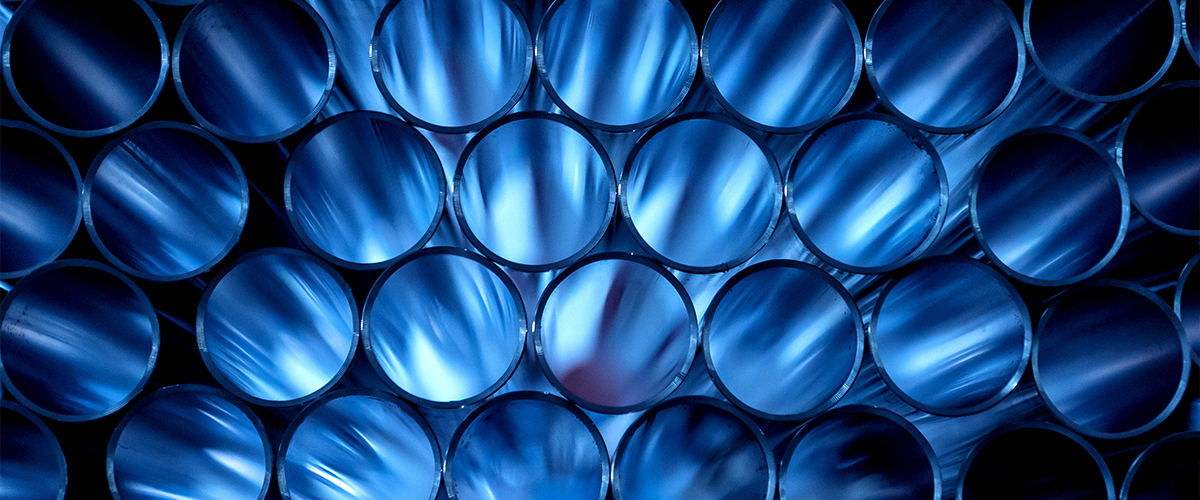Enhancing Metal Part Quality: The Role of Corrosion Preventatives in Manufacturing and Storage
In industries that deal with metal manufacturing—such as tube mills, automotive manufacturing, aerospace, and heavy machinery—corrosion prevention is a crucial part of the production process. Metals, particularly steel and iron, are highly susceptible to corrosion, which can significantly impact their quality, performance, and usability. One of the key challenges faced by these industries is ensuring that metal parts are properly protected between various stages of the manufacturing process and during transport. Both inter-process storage and transport expose metal parts to various environmental factors such as humidity, temperature fluctuations, air pollution, and contaminants—all of which can accelerate the corrosion process.
Corrosion preventatives are specialized treatments and coatings designed to protect metal surfaces from the damaging effects of rust and oxidation. When applied during inter-process storage and transport, these preventatives help preserve the integrity of metal parts and ensure that they arrive at the next phase of production—or at the customer—in the best possible condition.
Why is Corrosion Prevention During these stages Critical?
Corrosion is a natural process where metals deteriorate as a result of chemical reactions with their environment, often involving moisture, oxygen, or chemicals. The impact of corrosion on metal parts during inter-process storage and transport can be severe, leading to the following consequences:
- Quality Degradation: Corrosion can affect the appearance and structural integrity of metal parts, leading to defects that may require rework or result in product rejection.
- Loss of Strength and Durability: Corrosion can weaken the metal, reducing its load-bearing capacity and overall durability. This can pose safety risks in industries like automotive or aerospace where reliability is crucial.
- Increased Costs: Corroded parts may need to be replaced or undergo costly repairs and rework, increasing operational costs and delays. Handling or replacing defective parts can also disrupt production schedules.
- Contaminant Risk: Rust and corrosion products can contaminate other parts in the same storage area or during transport, spreading damage and complicating the logistics of handling.
- Customer Dissatisfaction: If metal parts are corroded when they reach the customer, the reputation of the manufacturer can be tarnished, leading to dissatisfaction, returns, and loss of future business.
Which Corrosion Preventative is Right for You?
The right corrosion preventative for you depends on a variety of factors including storage length, environmental conditions, and application method. The ANTICORIT range of industrial corrosion inhibitors is intended for protection periods ranging from a few months to years of storage, and for transit distances ranging from local to intercontinental. In our corrosion preventative series we look into the key considerations and best practices for in-process corrosion prevention as well as a guide to selecting the optimal corrosion preventative for your application.
Protect Against Corrosion with ANTICORIT
The protection of metal parts during interprocess storage and transport is a vital consideration for manufacturers. Corrosion can result in costly delays, defects, and loss of material integrity, which can ultimately harm the bottom line. By applying effective corrosion preventatives such as those from our ANTICORIT product line, manufacturers can safeguard their products and ensure that they remain in optimal condition throughout the production cycle. This line of solvent, oil, and water based corrosion prevention compounds has been designed with the latest anti-corrosion technology, which make them ideal for in-process, transit, and indoor or outdoor storage protection.
Ultimately, investing in corrosion prevention not only protects the parts themselves but also enhances operational efficiency, reduces waste, and improves customer satisfaction. In an industry where precision and quality are paramount, taking steps to protect metal parts during every stage of their journey is essential for success.
